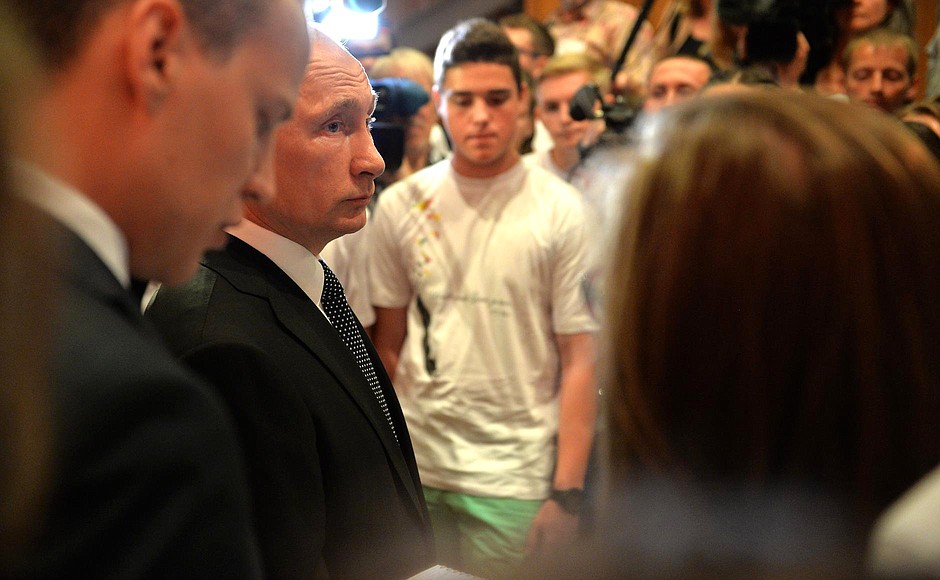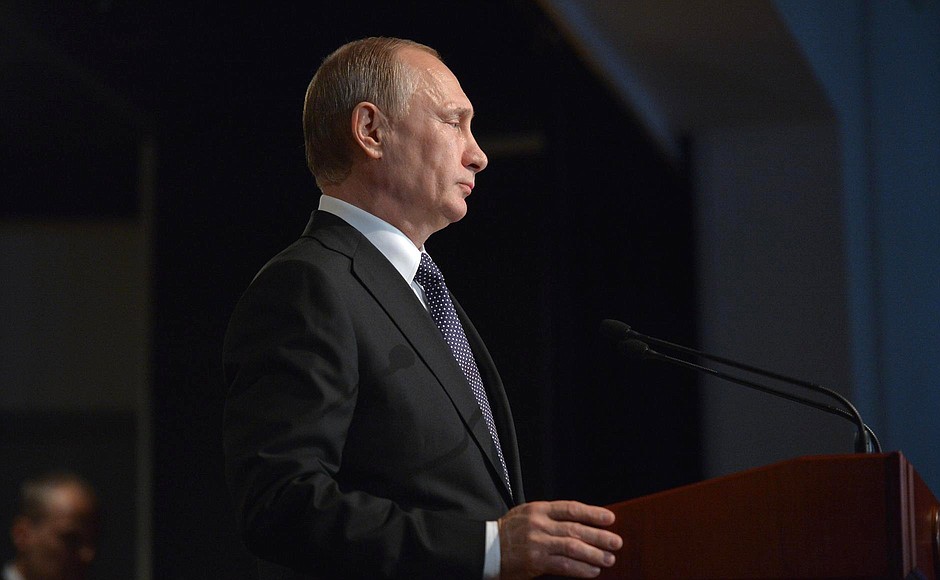The meeting was organised as part of the project Reconciliation at the Graveside – Work for Peace, carried out by the German School with support from the German National Union for Upkeep of Soldiers’ Graves and the German embassy in Russia.
* * *
President of Russia Vladimir Putin (speaking German, retranslated): Good afternoon, friends. It is a great pleasure to welcome you all here. It would be better for me to continue in Russian if you have no objection.
(Speaking Russian) Let me begin by saying that this initiative, which marks the 75th anniversary of the attack by Nazi forces on the Soviet Union, is a very timely and useful one. Here, I address particular thanks to the German National Union for the Upkeep of Soldiers’ Graves.
It is excellent to see that Russian and German schoolchildren are getting together to look back at the tragedies of the past and analyse together the consequences of intolerance and the desire to enslave other countries and peoples.
Seventy-five years ago, a war began that we know here in Russia as the Great Patriotic War. We call it ‘Patriotic’ because the Soviet people were fighting for their fatherland, and we call it ‘Great’ because of the number of lives sacrificed on the altar of victory over Nazism.
If you look at the figures, Britain lost nearly 400,000 people in World War II, 380,000 to be more precise, the United States lost slightly more – 400,000–410,000 people, Germany lost nearly 7 million people, and the Soviet Union nearly 25 million people, of whom more than 15 million were civilians.
It is excellent to see that Russian and German schoolchildren are getting together to look back at the tragedies of the past and analyse the consequences of intolerance and the desire to enslave other countries and peoples.
Of course, each human life is invaluable, an entire world in itself, but these losses I have just mentioned are simply too enormous to even begin to imagine. Our peoples, the peoples of Germany and the Soviet Union, suffered the greatest losses. We need to remember this today. This is essential in order to ensure such a tragedy never happens again in the future.
Meetings such as yours have the unquestionable goal of sowing the seeds of humanism, openness and cooperation in young minds and hearts. Of course, I am certain, your reciprocal visits to burial sites, your joint discussions, and your stays with local families will help to bring Russian and German young people closer together and thus guarantee that our two countries will cooperate for the good of their peoples in the future.
We particularly value the fact that you and the German National Union are working together with Russian public organisations and search teams to identify and recover the names of soldiers killed in World War II, and with the Russian Geographical Society and the Russian Military Historical Society.
Meetings such as yours have the unquestionable goal of sowing the seeds of humanism, openness and cooperation in young minds and hearts.
I find it particularly valuable and important that your work has the support of World War II veterans, including Great Patriotic War veterans. I am also certain that the events you have planned over the next couple of days will make a good contribution to the Year of Russian-German Youth Exchanges, which opened in Moscow in early June this year.
You all have an important and excellent reason for getting together, but I hope you will also have the chance to become more broadly acquainted with Russia and its capital, Moscow. Of course, it is essential that we know and remember past tragedies, but we need to look to the future too. As far as Russia and Germany go, our countries have always prospered when they worked closely together. These are not empty words; it is enough to look back at history.
I thank you for this contribution to developing our relations and I wish you a good stay here in Russia. I hope that your Russian friends will do everything possible to help you feel at home here.
All the best!

